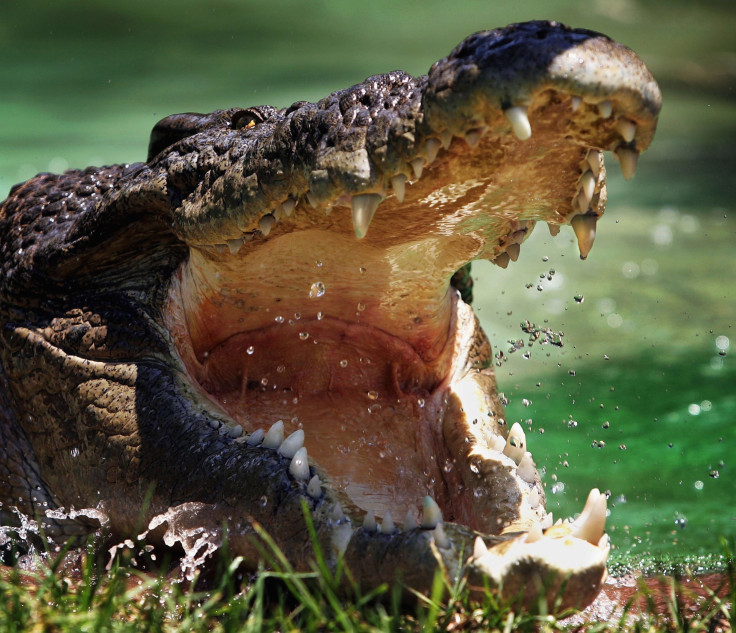Who Is Paul McClean? Financial Times Reporter Dies After Crocodile Attack

UPDATE: 3:25 a.m. EDT – Sri Lankan police recovered the body of Financial Times reporter Paul McClean Friday, after he was reported to have gone missing following a crocodile attack Thursday.
McClean's corpse was found by divers in the mud of a lagoon in the coastal village of Panama, east of capital Colombo.
"There were six or seven wounds on his right leg," a police official said, Channel News Asia reported. "The body was stuck in mud at about the same place where he was seen last by others who were with him."
The body is yet to be autopsied by medical examiner before an official cause of death can be declared.
Original Story:
A reporter working with the Financial Times went missing Thursday after witnesses saw him being dragged into the waters by a crocodile near the resort he was staying in Sri Lanka, where he was vacationing with his friends.
Paul McClean, 24, was staying with his friends in the East Beach Surf Resort near Aragum Bay in southeast Sri Lanka at the time of the incident, which was reported at 3:15 p.m. local time (5:45 a.m. EDT), Fox News reported.
According to reports, he had gone in search of a toilet with his friends at Elephant Rock surf spot; McClean had broken away from his friends and wandered into a lagoon to wash his hands when he was attacked by a crocodile and dragged into the water.
The reporter’s body is yet to be found, and a search is still ongoing.
According to McClean’s LinkedIn profile, he graduated from the University of Oxford with First Class Honors degree in French in 2015.
He was employed by the Financial Times in the same year. “I cover Brexit and the EU for the FT in Brussels, and previously wrote about consumer companies and currencies in London,” he wrote on his profile.
Excl: The 750+ agreements the UK needs to sign post Brexit, just to stand stillhttps://t.co/T7hKs2pf4l pic.twitter.com/e6m5ylfmeC
— Paul McClean (@PSMcClean) May 30, 2017
His father is a director of a management consultancy firm in Surrey, England and his brother, who is a couple of years younger than him, is currently fighting leukemia since 2014, and currently awaiting stem cell transplant, the Telegraph reported.
His last article titled “Climate change prompts investment in grapetech for champagne’s future” was published Tuesday.
Fawas Lafeer, owner of Safa Surf School, located up the coast from scene of the incident, said: “A local fisherman witnessed a man being dragged into a river, set back from the beach, by a crocodile. The fisherman was on the opposite side of the river and downstream of the incident location."
Lafeer also added that such attacks are not a common phenomenon in the area that is known to be infested with crocodiles. “Both tourists and locals surf at Elephant Rock, which is a beautiful secluded beach and very safe.”
2nd ed: Journalist Paul McClean from the FT presumed dead after being attacked by a Crocodile in Sri Lanka. #tcomorrowspaperstoday pic.twitter.com/pwbXXof2op
— The Times Pictures (@TimesPictures) September 15, 2017
McClean was also believed to have been taking surfing lesson before his untimely death, Lafeer said.
Even though personnel from the navy, army as well as police task force are lending a hand in the search, Lafeer doubted if McClean’s body would be found, saying the river was deep and murky.
A Scottish tourist, who chose to remain anonymous, added: “People last saw his arms in the air in the water and then was grabbed under. I was there but didn’t see it happen though. Horrible."
A colleague of McClean said: "We're all totally stunned. He was a great kid, an Everton fan, super bright. It's an absolute tragedy."
This is not the first crocodile attack in Sri Lanka. In April, a 13-year-old girl was attacked and dragged away by a crocodile when she was out with her family at Pulnewa Lake, in Galnewa in the North Western Province..
In July 2016, a 60-year-old Sri Lankan man became of a victim of a predator when he was fishing in the Paayindan River near the town of Sammanthurai in Ampara district of Eastern Province.
© Copyright IBTimes 2024. All rights reserved.












